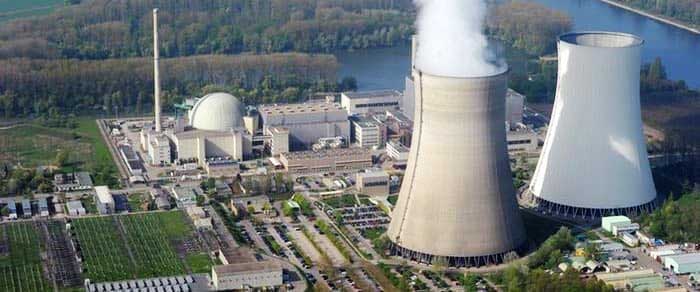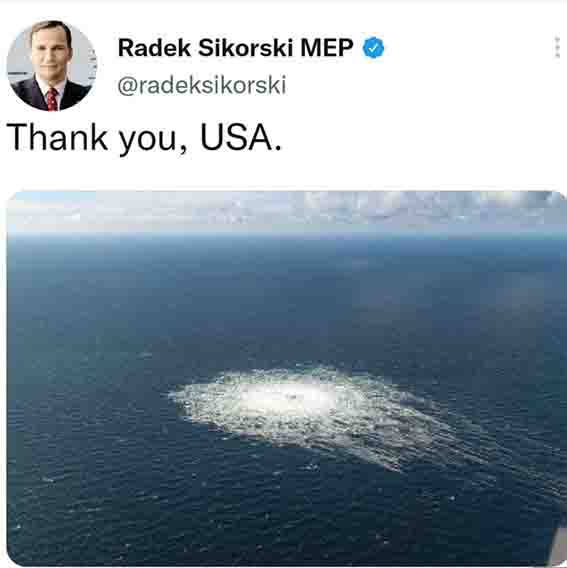
I thought the Green Party “Defence” Minister of Germany’s ruling coalition a singularly stupid warmonger till I discovered Smirnoff vodka. 1 It turns out she’s all the while been playing a brilliant 5-D chess game, only now delivering fool’s mate in the form of a greener Germany.
To the casual eye it may have looked as if Annalena Baerbock – like Emmanuel Macron and, not to be outdone in the Woman-Can-Be-Tough stakes, Estonia’s Kaja Kallas and their counterparts across Europe’s Extreme Centre – was serving her Washington handlers fulsomely; prosecuting their war on Russia in Ukraine by generously sacrificing the interests of Germany.
Whereas what she was actually doing – how could I have so badly underestimated her? – was advancing her country’s march to the sunlit uplands of environmental purity. Here’s Tsvetana Paraskova, writing yesterday on OilPrice.com
Germany’s Grid Is Getting Greener as its Industry is Weakening
- Germany is making progress in boosting the share of renewable energy sources in its power supply.
- The large cut to fossil fuel-powered generation was mostly due to lower total power output.
- The grid is getting greener and emissions from the power sector are falling, but these developments have been mainly driven by anemic economic growth and weak industry in Europe’s biggest economy.
Germany is making progress in boosting the share of renewable energy sources in its power supply, but it should be applauded with a cautionary note because the bulk of that progress is because of weaker electricity demand amid sluggish industrial activity …
It’s a short piece so I’ll feature in its entirety but before I go on let me quote in edited form Yves Smith, introducing it on Naked Capitalism today.
This post highlights that Germany’s apparent improvement in green transition is not what it seems. The proportion of total energy consumption from renewables is up, but the improvement is due in large measure to a fall in demand from industry. Amusingly, the article acknowledges higher energy costs as the reason for flagging manufacturing, but never mentions destruction of the Nord Stream 2 pipelines. 2
Back to Ms Paraskova.
Power providers have drastically cut their total electricity output from fossil fuels so far this year. Yet, this reduction hasn’t been offset by a similar jump in generation from renewable energy sources, suggesting that the weak power demand is the driver of lower overall power output and reduced fossil fuel generation in Europe’s biggest economy.
Germany’s power producers saw fossil fuel electricity production drop by 19% in the first half of this year compared to the same period of 2023, according to LSEG data cited by Reuters columnist Gavin Maguire.
However, renewables power generation increased only by 2.1%.
The large cut to fossil fuel-powered generation was mostly due to lower total power output, which was down 6% year-over-year between January and June 2024 amid lower electricity demand with weak industrial activity.
A rebound in said activity would boost power demand in Germany, and its power firms may have to resort to more natural gas-fired generation, offsetting some of the progress in clean energy supply to the grid.
Last year, wind power overtook coal to become Germany’s largest source of electricity, according to clean energy think tank Ember.
Germany relied on fossil fuels for 46% of its electricity last year; however, the single largest source of electricity was wind with a 27.2% share, ahead of coal with 26.8%.
Since 2015, Germany’s falls in nuclear – phased out in 2023 – and coal generation have been mostly met by higher wind and solar generation alongside net electricity imports and gas-fired generation, Ember’s European Electricity Review 2024 showed earlier this year.
Germany installed record-high power capacity from solar and wind in 2023, but only solar additions met government targets, while wind power installations fell short of goals. The new solar capacity is on track to meet the government’s 2030 goals. Wind power also saw an increase in wind power tenders, which awarded a record-high total power capacity of 6.4 GW last year, data from wind power association BWE showed at the end of 2023. Unfortunately, these were short of the 10 GW annual goal.
While the share of renewable energy sources in Germany’s gross electricity generation reached 53% in 2023, up from 44% in 2022, the country needs to accelerate solar, wind, and battery capacity installations to have renewables account for 80% of its electricity generation by 2030.
The grid is getting greener and emissions from the power sector are falling, but these developments have been mainly driven by anemic economic growth and weak industry in Europe’s biggest economy.
The high energy costs have been a key reason for weak manufacturing and industrial activity in Germany over the past two years. Energy-intensive industries, especially chemicals and fertilizers, have been hit the hardest.
“No other sector has been hit harder by the “new energy world” (lower absolute gas imports and higher energy prices compared to pre-war levels and compared to the US and China) than the chemical industry,” Deutsche Bank Research said in February this year, saying that the decline in Germany’s industrial production “is not over yet.”
The Federation of German Industries, BDI, is not optimistic for the near term, either.
Waddyaknow?!? Looks as if the BDI is making the same mistake I made. Why don’t its stony-faced Cassandras all take a leaf from the steel city book of epiphany, pour themselves a stiff glass of Smirnoff and start looking on the green side of life?
* * *
- Cryptic indulgence. Older Brits will recall a humorous 70s ad campaign – I thought the Karma Sutra an Indian restaurant till I discovered Smirnoff – which led to such choice street versions as I thought Wanking a place in China … Cunnilingus an Irish airline …
- Yves implies here the 99.9999% certainty of Washington being behind the September 2022 destruction of NordStream 2, an act of unprecedented economic terrorism and despicable eco-vandalism. See this steel city post from December 2022.


I see what Germany and Baerbock did there. They exported the fossil fuel burning to Ukraine. I dread to think what the carbon footprint of that war is what with all those panzers burning on the steppes and all.
Nothing to get worked up about, Gerald. Just a wholesome neoliberal trading of carbon credits is all.